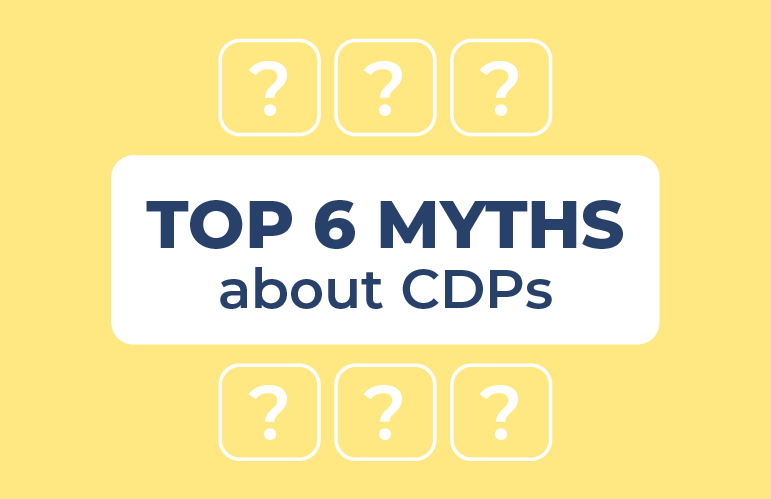The trend for a CDP is in full swing. And it makes sense: what company wouldn't want to be able to collect all its customer data in one place?
The SaaS vendors on the market have made no mistake, using the term Customer Data Platform to promise their customers the best.
So much so, in fact, that CDPs have sometimes even been described as miracle solutions to all marketers' ills. But we know how common these fads are among new digital marketing tools, and we're going toidentify and explain the 6 myths that have been created around CDPs.
A CDP will replace all other marketing data tools
A CDP is very effective for collecting, standardizing and segmenting customer data, but it doesn't replace other tools with specific functions.
- Customer Relationship Management (CRM) systems: CRMs are generally used to manage direct customer interactions. While a CDP can integrate CRM data to provide a more complete view of the customer, it does not replace the CRM's customer interaction management function.
- Data Management Platforms (DMPs): DMPs are primarily used to manage third-party data for advertising purposes. A DMP, on the other hand, is primarily focused on managing first-party data.
- Content Management Systems (CMS): CMS are used to manage the content of a website. While a CDP can help personalize content according to customer data, it does not replace the content management and creation function of a CMS.
Implementing a CDP is a fast solution
Implementing a CDP can be a complex project, requiring time and resources.
- Systems integration: for a CDP to work effectively, it must be integrated with all other company systems that collect customer data.
- Data cleansing: before a CDP can be used effectively, existing data must be cleansed and normalized.
- Team training: the team needs to be trained to understand how to use CDP effectively.
- Process development: the company needs to develop processes for collecting, managing and using data.
All CDPs are identical
CDPs can vary considerably in terms of functionality, specialization and cost.
- Functionalities: some CDPs may focus more on data collection, others on data unification, some on data analysis, etc.
- Sector-specific: some CDPs can be designed for specific sectors.
- Integrations: CDPs can vary in terms of the systems and platforms with which they can be integrated.
A CDP is just for marketing
CDPs can offer benefits to other departments.
- Sales: the sales team can use unified CDP information to gain a complete view of the customer journey.
- Customer service: thanks to CDP information, customer service can offer a more personalized service and respond more effectively to customer requests.
- Product: product teams can use CDP information to understand how customers use and interact with products.
CDPs are only useful for large companies
CDPs can benefit companies of all sizes.
- Small businesses: even with a smaller volume of data, a small business can use a CDP to gain a better understanding of its customers and improve its marketing efficiency.
- Growing companies: for fast-growing companies, a CDP can help manage the increasing volume of data.
CDPs can facilitate compliance with certain data confidentiality regulations, but they are not a complete solution.
- Privacy policies: a company must always have clear privacy policies that comply with regulations.
- Customer consent: having a CDP does not replace the need to obtain customer consent to collect and use their data.
- Right to be forgotten: a company must have processes in place to respond to customer requests to delete their data.
And there you have it, we've debunked 6 myths about CDPs! We hope this hasn't caused you to give up on your CDP project, because at the end of the day, we know just how useful a tool it can be for companies to get to know their customers better. For more information on Splio CDP.

